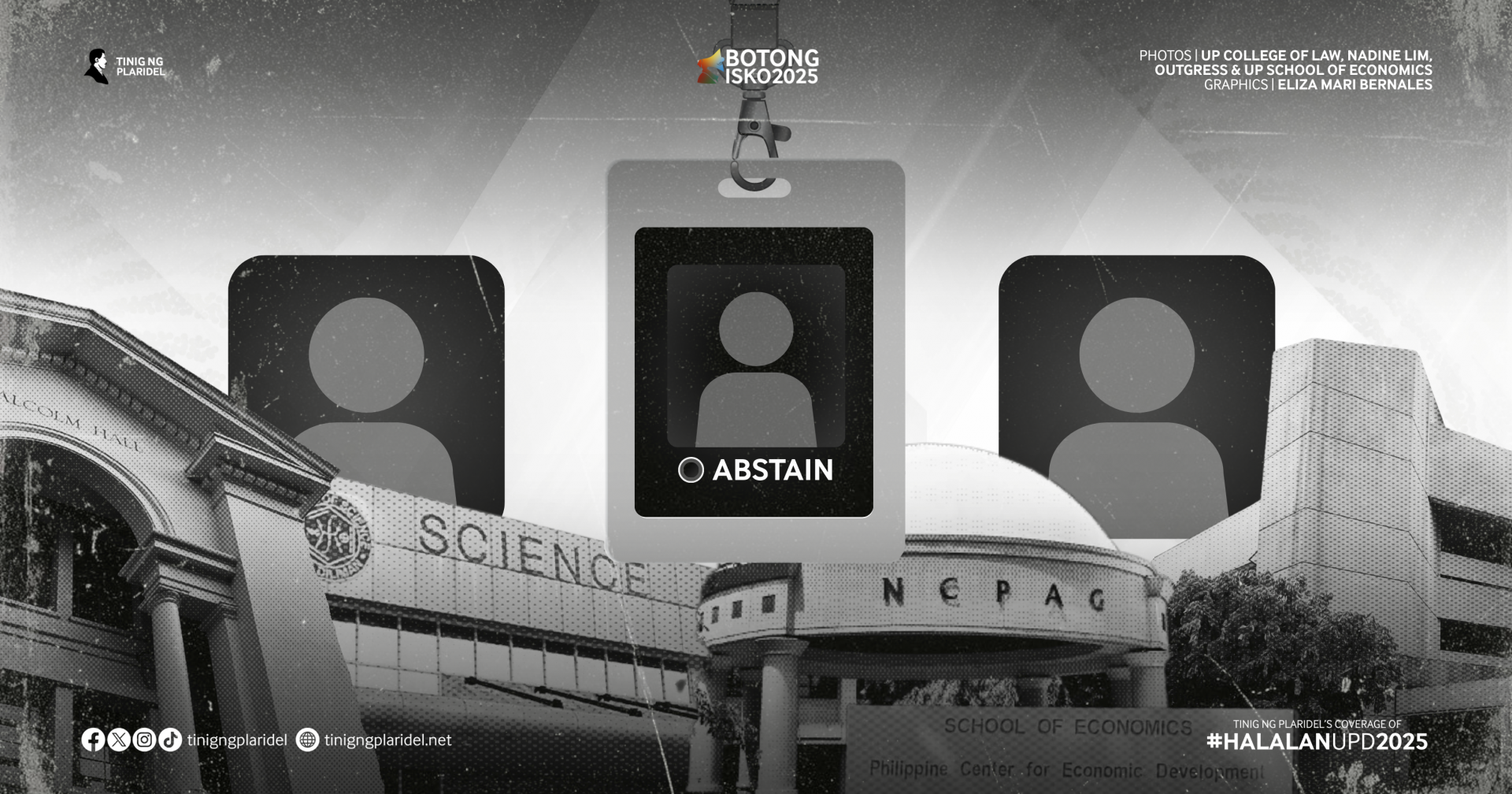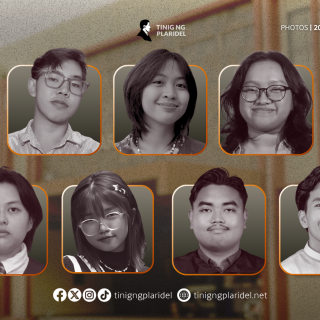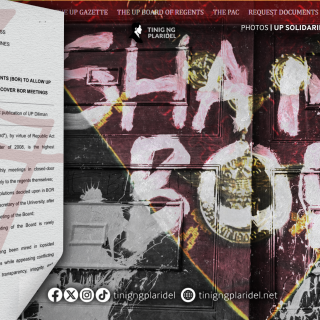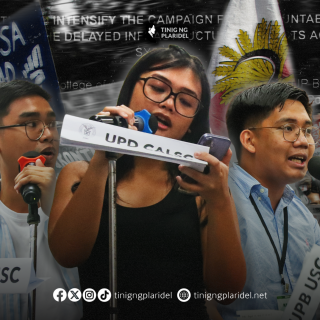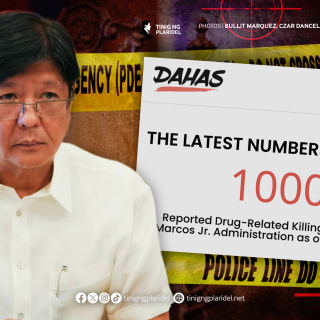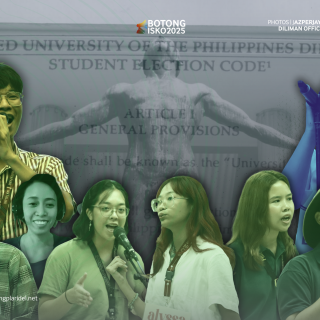Abstention outpolled all five councilor bets in four University of the Philippines Diliman (UPD) colleges in the 2024 University Student Council (USC) special elections.
The two-day voting period for special elections saw 9,771 students casting their votes, logging 37.13% voter turnout—the highest since 2022. However, over a quarter of the votes were cast for abstain in the councilor races.
Only Kristian Mendoza and now-USC chairperson candidate Joaquin Buenaflor managed to escape the abstain sweep, while three other candidates from the 10-point agenda coalition, Olivia Herrera, Aimee Ramos, and Ramon Christian Placido, failed to secure councilor seats.
READ: Latorre, Beltran to lead an understaffed USC
Among the colleges where abstentions outnumbered votes for councilor candidates are the College of Law, National College of Public Administration and Governance (NCPAG), School of Economics (Econ) and College of Science (CS).
The College of Law recorded the highest number of abstain votes for the councilor race with 361, more than double of the 164 votes Mendoza, the top councilor candidate in the college, garnered, according to data obtained from the Office of Student Projects and Activities.
Meanwhile, CS, the second most vote-rich unit, recorded 321 abstentions, tying with Mendoza’s vote count. NCPAG and Econ recorded 170 and 141 abstain votes, respectively, outnumbering Mendoza’s votes.
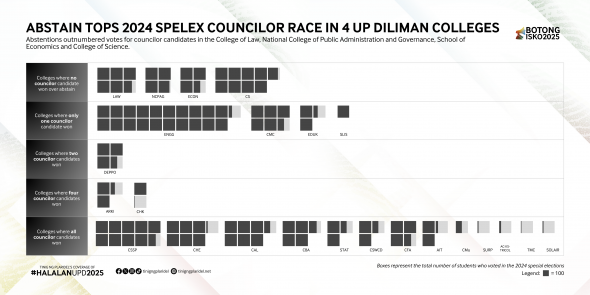
Over the past two years, the abstain vote has consistently dominated UPD’s polls. In the May 2024 regular elections, no bets from chairperson, vice chair, and councilors secured enough votes to surpass the abstain option, leading to a complete vacancy across all USC seats for the first time since the Martial Law.
Unfelt presence
Among those who voted abstain was second-year law student Hannah Datudacula, who expressed feeling disconnected with the USC’s leadership on campus. She also pointed to the lack of visible advocacy and tangible support from elected leaders as factors in her decision to abstain.
“We don’t really feel the influence of USC. We don’t even feel the presence of our LSG [Law Student Government]. What we’re thinking is, why are we still voting for someone that we don’t even feel,” she said.
“Parang iba yung mundo sa Malcolm. And that we’re kind of really isolated. And whether or not may USC, the world will keep moving forward sa Malcolm.”
Although some vacant USC positions were filled last October, Datudacula was surprised that the special elections had yielded winners, “Parang kaya lang may nanalo kasi may napilit na bumoto.”
Datudacula said she felt no substantial change when the USC was completed in the special elections, and felt even more isolated amid the controversies surrounding UP Fair. She recalled the time when the fair’s early soundchecks disturbed their 7 a.m. civil procedure class.
“Can you imagine a 2-hour and 30-minute class at 7 in the morning? Nag-re-recit ka. You’re very scared na matawag sa recit. Tapos, kakompetensya mo yung UP Fair na nag-sasoundcheck ng super aga. Kahit there are apparently promises na hindi silang magsas-start ng ganon,” she said. “And it was mid-term season. It was very annoying, aggravating. So, until now, nag-sistick pa rin yan sa amin.”
While Datudacula recognizes the limitations of student leaders particularly when it comes to negotiating with the admin and overcoming bureaucratic hurdles, she hopes the next USC members would have a “solid and unapologetic” stance and be more engaged with the students’ concerns.
She also seeks transparency among the candidates. Despite the “new faces” among the aspirants, she said many of the current candidates were previously affiliated with organizations that faced controversies in the past.
“We already know, you’re in one group, even though you say that you’re running independently […] I wouldn’t say apologize for the actions of the people but do acknowledge that they happened or that it happened,” she said. “Parang yun yung naka-insulto eh, yung tinatago na nga yung affiliation, tinatago pa na they have something, they were involved, na they knew and they didn’t say anything.”
Divided stance
During the UP Law Convocation on May 7, councilor aspirants acknowledged the various reasons behind abstaining, while explicitly advocating for the removal of the abstain option in the ballot.
Alyssa Alano, an independent councilor candidate from the Laban Kabataan Coalition, said she is in favor of removing the abstain option and criticized the vagueness of the guidelines for abstention as a vote.
“It’s the matter of kung paano ba ang mga student leaders natin nagc-campaign and nagpapakilala para iboto sila,” she noted, pushing for electoral reforms to address the issue.
Likewise, independent councilor bet Amanda Echanis pointed out the importance of having student council leaders form campaigns and face administrators against contentious issues in the university.
“Sino ba si abstain?” Echanis said. “Isang necessity ang pagkakaroon ng student council sa harap ng kaliwat kanang issue sa loob ay labas ng unibersidad – privatization, commercialization, at boses ng mga iskolar ng bayan.”
However, current USC Chairperson Sean Latorre emphasized in an interview with Tinig ng Plaridel that abstain is a “valid vote.” Latorre said the domination of abstain votes in the past two elections has pushed student leaders like him to rethink how they design campaigns to better connect with students.
“If we are able to put out student leadership that resonates with the students’ struggles, we shouldn’t be afraid of abstention prevailing,” Latorre added.
With abstention prevailing in the previous years, former Vice Chancellor for Student Affairs Jerwin Agpaoa urged the elected leaders from the special elections to “review” the election code, in a post-proclamation interview with Tinig ng Plaridel.
Latorre said vacancies in USC had hampered the council’s campaigns, “Being understaffed led to USC committees being vacant or having no head. In general, it is evident that the lack of filled seats in the USC has affected our manpower and welfare in general.”
READ: ‘Abstain vote’ causes stir anew UP Spelex 2024
As of press time, no consultations or discussions on reforming the electoral code have surfaced, with only a month before the current USC’s term concludes.
Calls for visibility, accountability
For Datudacula, the solution is not to remove abstain as a voting option, but to “reevaluate” how the USC engages with its constituents. Besides signifying students’ demand for changes in USC, the rise in abstentions also reflect their desire for genuine representation.
“We didn’t just elect the rep. You, as a whole, were elected to represent us. So not only the LSG rep. should come to us and ask what we need. We need to talk to you to be able to have a space where we can air our grievances and to ensure that you really heard it, and then you know, just do whatever it is that you promised to do,” she said.
Even if the outcomes fall short, Datudacula said the effort can still help rebuild credibility with the student body.
“We won’t be mad [for the lapses] at you anymore because we know that you tried your best,” Datudacula said. “At the end of the day, really, especially for us in the College of Law, I keep repeating that we don’t feel the USC, it’s a very nothing organization […] So there, let us feel that you exist and then act like you really do exist.”

